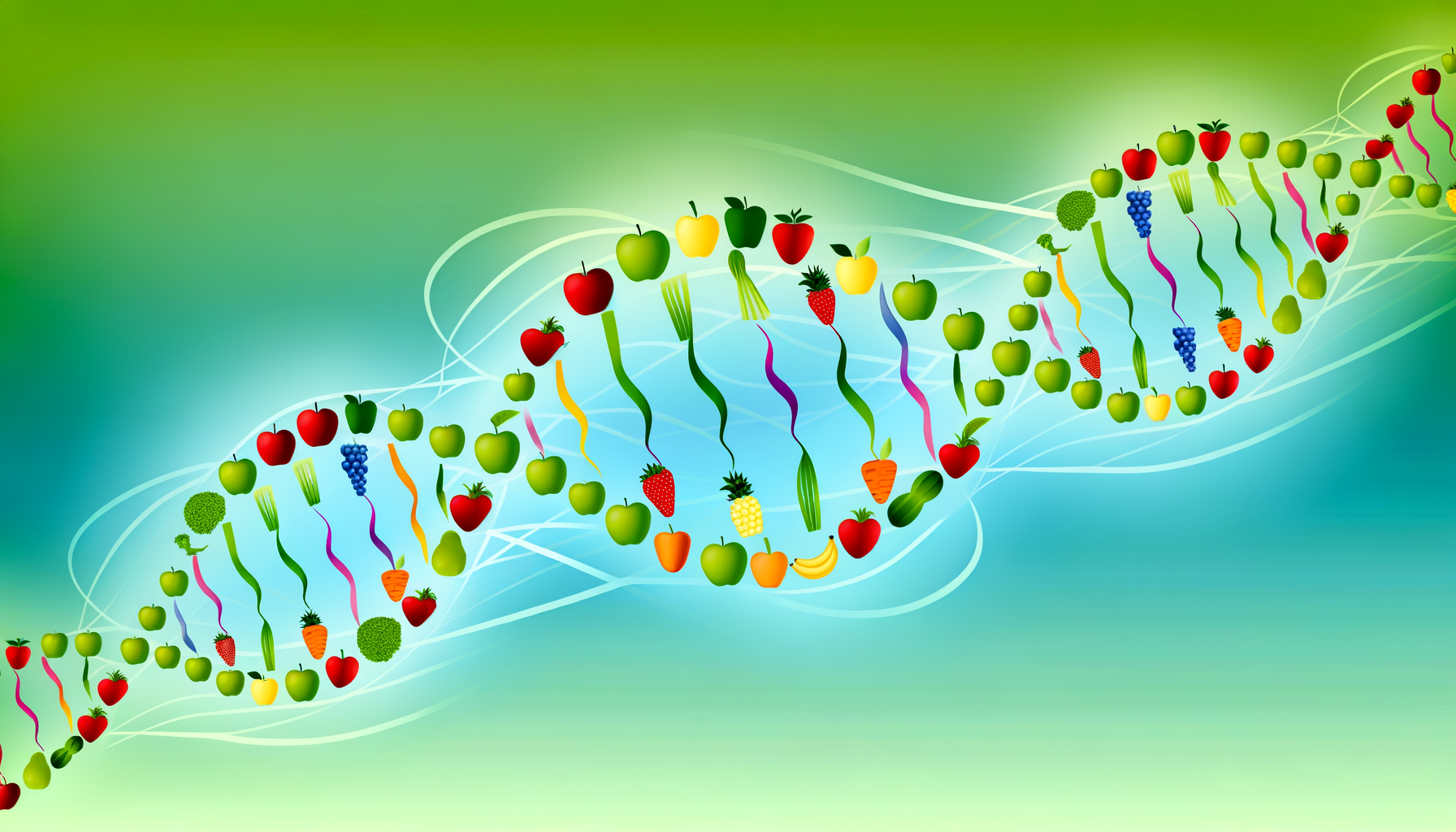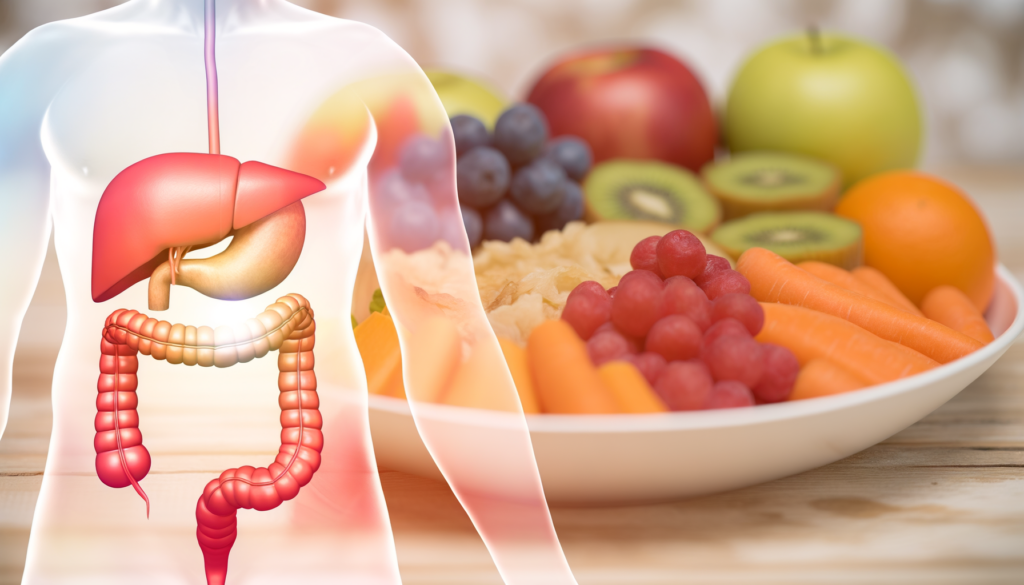Revolutionizing Health: The Synergy of Calorie Tracking and DNA Testing
In the era of personalized health, the integration of calorie tracking with DNA testing is poised to revolutionize the way we approach nutrition. This innovative approach combines the precision of genetic analysis with the practicality of calorie monitoring, offering a tailored dietary plan that is both effective and sustainable.
The Science Behind Personalized Nutrition
Personalized nutrition, often referred to as nutrigenomics, is a discipline that leverages individual genetic profiles to formulate nutritional strategies. This field is built on the premise that genetic variations significantly influence how our bodies respond to different nutrients and foods. Genetic testing can reveal specific genes such as MTHFR, FTO, and APOA2, which play crucial roles in determining dietary needs. For instance, genetic variations in the FTO gene have been linked to obesity and weight management, suggesting that personalized dietary interventions could be more effective for individuals with this genetic predisposition[2].
How DNA Testing Works in Nutrition
DNA testing for nutrition involves analyzing an individual’s genetic data to understand how their body metabolizes different nutrients. Here are some key aspects of DNA-based dietary recommendations:
DNA tests can identify how efficiently an individual metabolizes substances like caffeine, alcohol, and various nutrients. For example, genetic variations can determine lactose tolerance or the body’s ability to process certain vitamins and minerals. Services like Living DNA and 23andMe provide detailed reports on how an individual’s genes affect their health, including customized meal plans, exercise recommendations, and supplement advice tailored to the individual’s genetic makeup[2][5].
Integrating Calorie Tracking with DNA Testing
Calorie tracking is a fundamental component of any dietary plan, as it helps individuals manage their energy intake and achieve their health goals. When combined with DNA testing, calorie tracking becomes even more effective.
By understanding an individual’s genetic predispositions, it is possible to tailor their caloric intake to their specific metabolic needs. For example, if a DNA test reveals that an individual has a slower metabolism due to genetic factors, their calorie intake can be adjusted accordingly to support weight management. This integration also allows for an optimized macronutrient balance, ensuring that the individual is consuming the right portions of carbohydrates, fats, and proteins to support their health and fitness goals[2].
Real-World Examples and Case Studies
Several studies and real-world applications demonstrate the efficacy of integrating DNA testing with calorie tracking:
The Food4Me Trial, a multi-country randomized controlled trial, found that personalized nutrition advice based on genetic data led to significant reductions in the intake of unhealthy foods and improvements in dietary quality compared to standard “healthy eating” advice. The DnaNudge app uses genetic information to provide personalized dietary recommendations, allowing users to scan food barcodes to find healthier product options tailored to their genetic profile. This approach has been shown to improve glucose regulation and reduce the risk of diabetes[2].
Benefits of Personalized Nutrition Plans
Personalized nutrition plans based on DNA testing offer several benefits:
Detailed analysis of genetic markers influencing weight, metabolism, and body type. For example, the AffinityDNA Diet and Healthy Weight Test Kit provides personalized recommendations for foods, nutrients, and exercises based on genetic markers[3].
Customized meal and workout plans. Services like myDNA offer daily personalized meal and workout plans designed with the individual’s DNA and goals in mind[4].
Insights into caffeine metabolism, lactose tolerance, and other dietary sensitivities. Understanding these genetic predispositions helps individuals make informed decisions about their diet and lifestyle[1].
Optimized fitness routines. DNA fitness testing can reveal whether an individual is genetically suited to power or endurance exercises, helping them plan more effective workout routines[5].
Limitations and Caveats of DNA Nutrition Tests
While DNA nutrition tests offer valuable personalized insights, they do have limitations. Genetic predispositions do not guarantee that an individual will or won’t experience a certain condition; they simply indicate a higher or lower risk. Additionally, the field of nutrigenomics is still relatively young, and new discoveries could refine or change current understandings. Therefore, it is important to take the results as part of a broader health strategy, rather than an ultimate solution[1].
Implementing DNA-Based Diets with Calorie Tracking Tools
To fully leverage the benefits of DNA-based diets, integrating them with calorie tracking tools is essential. Here’s how you can do it:
Use a calorie tracking service like Calorie Calculator Cloud to monitor your daily caloric intake. This tool can help you manage your energy balance and ensure you are meeting your nutritional needs based on your genetic profile. By combining this with the insights from your DNA test, you can create a highly personalized and effective dietary plan[2].
Case Study: Integrating Calorie Calculator Cloud with DNA Testing
Imagine an individual who has undergone a DNA test and discovered they have a genetic predisposition to slower metabolism and lower lactose tolerance. Using the Calorie Calculator Plans, they can adjust their daily caloric intake to match their metabolic needs. The calorie tracking tool can also help them ensure they are consuming the right balance of macronutrients and avoiding lactose-containing foods, all while providing detailed reports and recommendations based on their genetic data.
Conclusion and Next Steps
The integration of calorie tracking with DNA testing represents a significant advancement in personalized nutrition. By leveraging genetic insights and calorie monitoring, individuals can create tailored dietary plans that are both effective and sustainable.
If you are considering this approach, start by choosing a reputable DNA testing service such as Living DNA or 23andMe. Once you have your genetic data, integrate it with a calorie tracking tool like Calorie Calculator Cloud. This combination will provide you with the comprehensive insights and practical tools needed to achieve your health and fitness goals.
Remember, personalized nutrition is about more than just following a generic diet plan; it’s about understanding and working with your unique genetic profile to optimize your health. With the right tools and knowledge, you can make informed decisions that lead to better health outcomes and a more balanced lifestyle.








